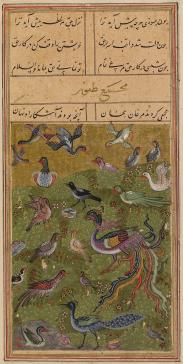In this project, I focus on the way in which Aristotelian notions of reason and experience were first translated into Arabic. During the ninth and tenth centuries, they formed the foundation of the philosophical tendency known as falsafa, or Aristotelian-based philosophy. Yet whereas for the Aristotelian tradition, the primacy of logical reasoning in the methodology of the sciences that the Stagirite developed primarily in Posterior Analytics remained more or less unquestioned—forming the basis of the method used, for instance, by Avicenna in his massive philosophical encyclopedia the Book of the Healing (Kitāb al-Šifaʾ)—this approach was not universally accepted in the Islamicate world. One approach that challenged it was that of Sufism, which upheld the primacy, in the quest for knowledge, not of reason, logic, and deduction, but of experience and revelation. Avicenna generally combated such views, but in some of his less-studied works, he himself seems to come close to espousing the primacy of experiential knowledge. The goal of my work will be to illustrate these differing approaches, and, since the Sufi approach is less well known in the West, to try to situate and illustrate the Sufis’ belief in the preeminence of experience on the basis of their overall view of God, human beings, and the world.

A page from ms. Oxford Bodleian Library, Ms. Elliott 246, fol. 25v, dated 1493, of Farīd al-Dīn ʿAṭṭār, The Conference of the Birds (Manṭiq al-ṭayr).
Project
(2020)
